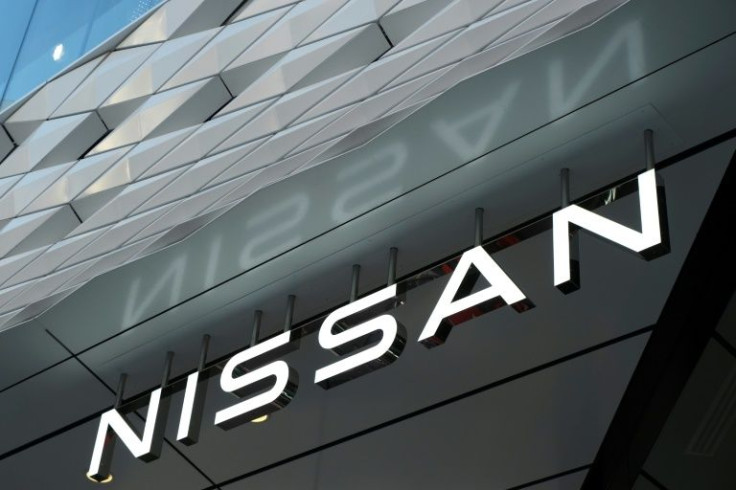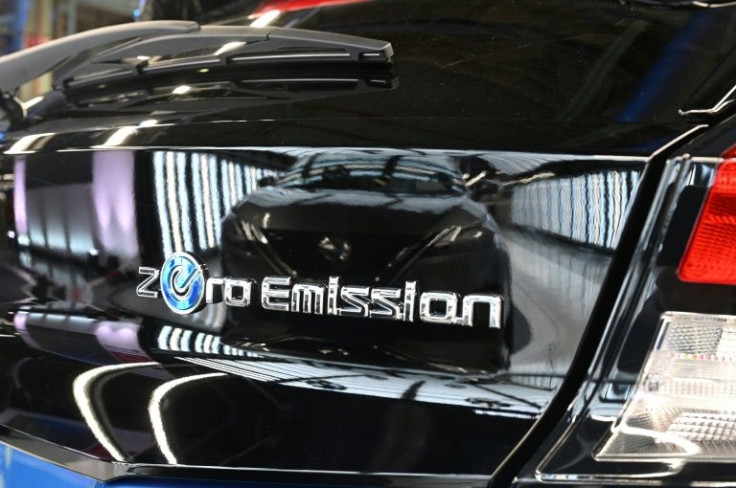Nissan Touts 'Pioneer' Status With New Electric Vehicle Targets
Nissan on Monday unveiled plans for electric and hybrid vehicles to make up half its global sales by 2030, with a top executive insisting the firm's "pioneer" status would help it capture market share.
Speaking to AFP, Nissan number two Ashwani Gupta insisted the firm's electric vehicle (EV) targets were "progressive" and said he welcomed "healthy competition" from all-electric rivals like much-hyped Tesla.
"In 2010 when we talked about electric batteries, we were the only ones, and thanks to all these players the awareness has improved. That's helping us," he told AFP after the firm unveiled its new Ambition 2030 long-term plan.
"We are very happy to have these players who are creating the EV awareness... healthy competition is always good."
Last year, just 10 percent of Nissan's global sales were EVs or hybrids, and it said Monday it plans 23 new models, including 15 new electric vehicles, in a bid to reach the 2030 goal.

It said it will invest two trillion yen ($17.5 billion) over the next five years to speed up electrification, compared to spending one trillion between 2010-2020, aiming to launch electric vehicles with its proprietary batteries in seven years.
Across the auto industry, firms are boosting electric vehicles, with Sweden's Volvo pledging to switch all sales away from traditional fuel cars by 2030, and Japan's Honda setting the same target by 2040.
Gupta denied that Nissan's targets were unambitious by comparison, insisting the plan was "sensible, grounded and progressive."
"We are the pioneers," Gupta added. "We launched our first battery electric (vehicle) in 2010, the market didn't exist and the customer didn't ask for it."

Now, he said, Nissan is "capitalising on the assets which we have prepared in the last 11 years."
"Our asset is not only about technology, but our asset is (our) customer who has used our battery electric cars," he added.
Electric and hybrid vehicles are being increasingly adopted in the face of concern about climate change, with Britain moving to ban new sales of diesel and petrol cars in the UK from 2030, and hybrids from 2035.
US President Joe Biden earlier this year announced a target for half of all cars sold domestically by 2030 to be zero-emission.
At present, around 10 percent of European car sales are EVs, but the US figure is just two percent.
Nissan has been battered by a series of problems in recent years, from weak demand even before the pandemic, to the fallout from the arrest and subsequent escape of former boss Carlos Ghosn.
After falling behind rivals during Covid-19, it has begun clawing its way back, tripling its full-year net profit forecast earlier this month despite the impact of a global chip shortage.
Ghosn's arrest exposed rifts in Nissan's alliance with Japan's Mitsubishi Motors and France's Renault, but Gupta said the partnership was "stronger now" and had helped the three firms weather the global chip crisis and supply shortages.
"The alliance has taught us that we have to collaborate with each other. There is no other option. And that's where the crisis is making it more and more important to work together," he said.
As for Ghosn, who remains a fugitive in Lebanon after jumping bail in Japan where he faced trial on financial misconduct charges, Gupta said the saga was now behind Nissan.
"I think we are moving on and we are talking about more future than the past."
© Copyright AFP 2024. All rights reserved.











